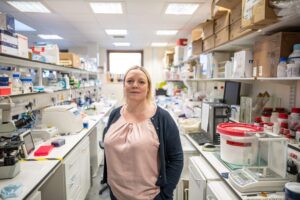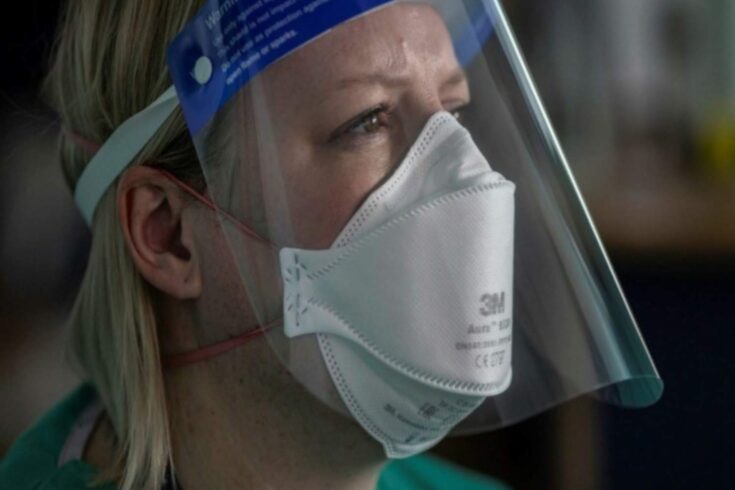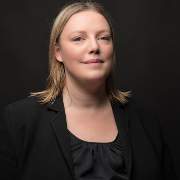I am a clinician and researcher who studies acute respiratory distress syndrome. This is a severe and often life-threatening condition arising when lungs become acutely unwell and fail to deliver the oxygen needed by the body.
In January 2020, I attended a workshop in Barcelona and presented my team’s work about the 2009 to 2011 influenza A pandemic.
This had been funded by GlaxoSmithKline and Medical Research Council via a network called the ‘Experimental Medicine Initiative to Explore New Therapies’.
Little did anyone in the meeting seem to realise that another pandemic was already underway.
Facing a pandemic
By the end of January 2020, COVID-19 had arrived in the UK and the level of concern was rising in both clinical and research circles.
In early February 2020, in order to learn about the emerging threat, the intensive care team at Addenbrooke’s Hospital met with our colleagues from:
- virology
- infection control
- public health
- microbiology.
We began planning how we would cope when and if it arrived at our Intensive Care Unit (ICU).
Endless questions
After two years, it is hard to convey the uncertainty and fear that was prevalent in early 2020. We had endless questions, including:
- how serious was this new virus?
- what care would our patients need?
- what were the risks to us and our loved ones?
It was the first time I have ever had reason to seriously consider that doing the work I love may have consequences for my family. Many sleepless nights were had.

Professor Charlotte Summers in lab. Credit: Charlie Bibby
Research was the answer
The answer we needed for many of our questions was research.
National pandemic planning went up a gear in March 2020, and I found myself acting as a clinical advisor to the government’s Ventilator Challenge programme.
There was concern we may not have the equipment we needed for UK ICUs to weather the coming storm. My days were filled with wall-to-wall meetings about the local and national response to COVID-19 and trying to make sensible plans for what was about to engulf the NHS.
In April 2020, the first wave hit UK ICUs, and looking back things are a blur.
Determined to do everything we could
My research team was determined to do everything we could to support the national research effort.
This meant all other work was paused as we concentrated on recruiting as many participants as we could into the following national research studies:
- the Coronavirus Clinical Characterisation Consortium
- a study to find the genetic factors that determine outcome in critical illness
- the randomised evaluation of COVID-19 trial
- a randomised trial for community-acquired pneumonia.
Our goal was to ensure that every patient with COVID-19 admitted to ICU in Cambridge was offered the opportunity to participate in research.
It sounds easy, doesn’t it? But it is not.
It requires deep commitment to the idea that research is the exit strategy from a pandemic.
A commitment to research
April 2020 also saw me drawn into the national committees seeking to prioritise what therapies we should be testing in clinical trials. This endeavour later became the UK Research and Innovation (UKRI) managed UK COVID-19 Therapeutic Advisory Panel.
This reviewed hundreds of potential therapies for COVID-19 and made recommendations to seven national platform clinical trials.
By summer of 2020 it was clear that patients who left hospital after COVID-19 were continuing to have increased risks of:
- death
- hospital re-admission
- long-term symptoms after their initial hospital admission.
Research was urgently needed to seek interventions that reduced the excess mortality and morbidity we were witnessing.
Balancing patient care and research
By the end of 2020, the concept of the HElping Alleviate the Longer-term consequences of COVID-19 (HEAL-COVID) trial was born.
It would become the world’s first clinical trial to compare different treatments that could prevent or reduce long term health issues in COVID-19 patients.
I now found myself leading a national urgent public health platform clinical trial whilst in the middle of the second wave.
For UK ICUs, the second wave was significantly worse than the spring 2020 wave. In January 2021, UK ICUs stretched their resources to open the equivalent of more than 140 extra ICUs.
Life-changing impact
January 2021 also brought good things.
I have rarely been more delighted than when I received my first COVID-19 vaccination. It felt like progress had been made and the sun might be coming up once again after many months of darkness.
Much of my COVID-19 related work, including HEAL-COVID, continues because the pandemic is far from over.
But due to the progress we have made with vaccines and therapies we have reduced the burden of mortality and morbidity from COVID-19 in the UK.
National research effort
However, diverting the national research effort towards a single problem has consequences.
There is much to be done to restore research programmes in other areas, whilst not losing the ground we have gained with COVID-19.
My own non-COVID-19 research has restarted, once again largely funded by UKRI, but it is tough to juggle the competing demands.
No overnight successes
So, what have I learned? There are almost no overnight successes.
The concept of 100-day missions to tackle pandemic threats captures imaginations and headlines.
But it is important to acknowledge that the success of such things is built on many years of building capacity and infrastructure.
Long-term investment
Without long-term investment, the successes of the past two years would not have happened. There would be no vaccines, and recovery and other trials would not have happened.
When the infrastructure is made available, I have been amazed by the progress we can make when we really try.
Imagine what could be achieved in areas such as climate change, air pollution, dementia and other infectious diseases such as tuberculosis if we try.
Learn more about the HEAL-COVID trial.
Top image: Professor Charlotte Summers in facemask and shield. Credit: Charlie Bibby




